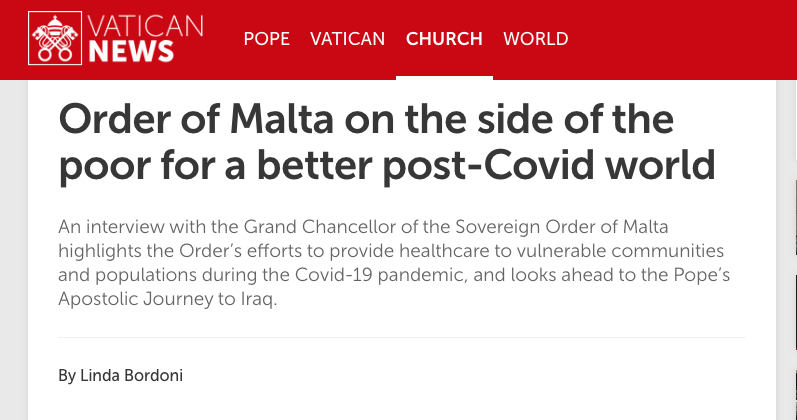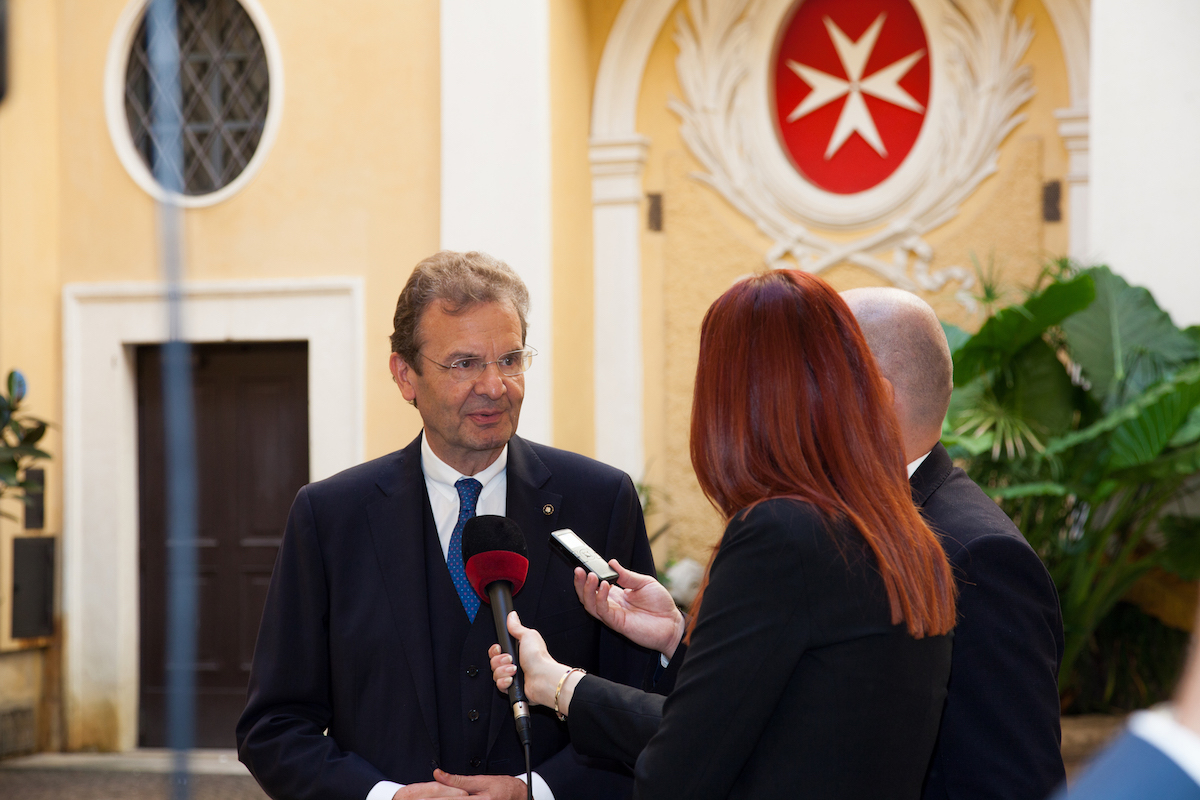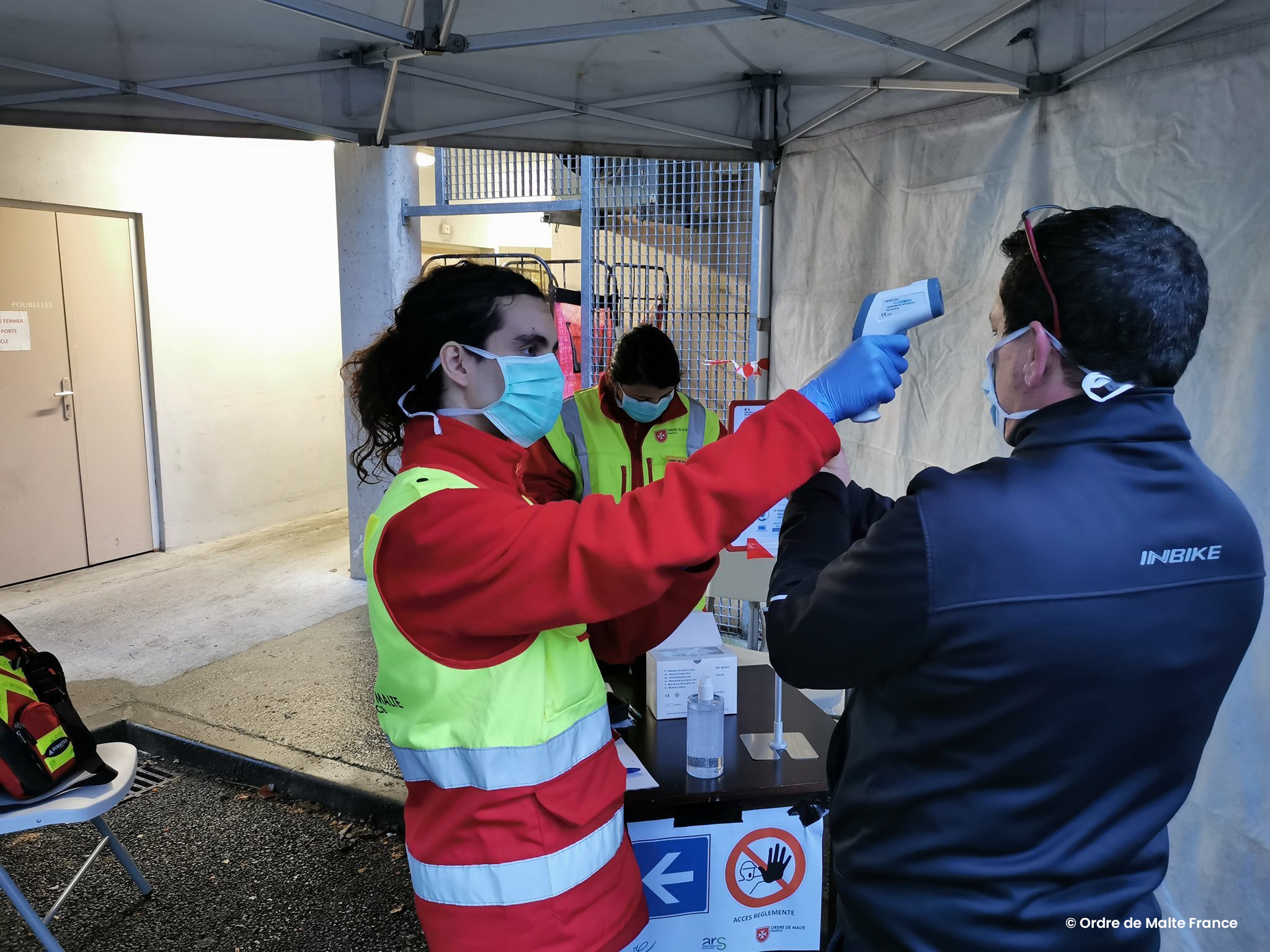In an interview with Vatican Radio, the Grand Chancellor of the Sovereign Order of Malta talks about the priorities of the institution’s worldwide action in the wake of the Covid pandemic and of the many ongoing humanitarian crises. Albrecht Boeselager calls for a fair and equitable distribution of the anti-Covid vaccines, noting that until these reach every corner of the world the virus will not be under control. “The pandemic will not be fought successfully if vaccines are not available everywhere: as long as there are remaining hot spots we will see mutations of the virus and the danger will not be under control. The other aspect – Boeselager then explains – is the equally important ethical aspect that rejects the possibility that one part of the world has access to vaccines and the other not.”
The Order of Malta, with its over 250 entities, has been actively engaged since the pandemic broke out a year ago and has intensified its medical and social programmes in many countries in the world. Boeselager stresses that the health crisis underway is putting many vulnerable people even in more danger due to limited access to food and basic medical assistance.
In the interview, the Grand Chancellor draws attention on the plight of hundreds of migrants and refugees trapped in the Balkans, on the Bosnian border with Croatia without adequate shelter or assistance in temperature below zero: “I think it is a scandal that people are almost taken as tools to show others they shouldn’t come, that they cannot expect a good life, and they are almost taken as hostages. It is unacceptable.”
On the eve of the apostolic visit of Pope Francis to Iraq, Boeselager explains that the Order of Malta’s worldwide humanitarian agency Malteser International is present in Northern Iraq and in the Nineveh Plains, where it runs projects for the protection of minorities and the reintegration of communities displaced during the war. “It is my hope that the Holy Father’s visit will give encouragement and hope to the people who are still threatened by fear and uncertainty regarding their future”.













